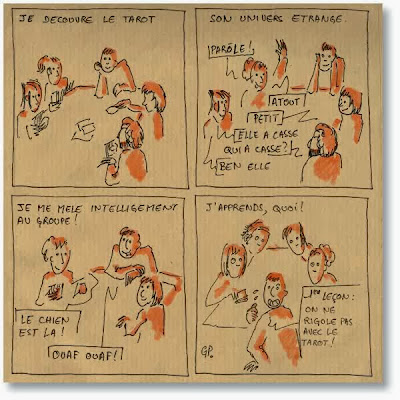I've now been into the library a number of times & actually used it so am in more of a position to assess its quality as a library.
There is a very clear difference between this one & the previous one, illustrated by the two pictures I've chosen. One shows the secret garden on the top but one floor. I went up there after sunset yesterday evening. It was exhilarating being up there in the dark during rush hour with the traffic out of the city like ribbons of light way below. I had this sudden strange urge to ask the security guard for sex & I assume it has that effect on other people because of the large signs warning about CCTV.
The other picture shows the space under the old library's inverted ziggurat as it was originally meant to be. And this is the difference: the old library was a statement in architecture & shape, sacrificing function to form. The present library is designed for its users.
I have a few qualms about its likely effect on its staff. Despite the large sign at reception stressing how important welfare of the staff has been, my impression is that the staff are very exposed to the all-critical eye of the public. There are walls of glass into offices & meeting rooms: the sense of continual scrutiny must be extraordinary.
In terms of using the library it doesn't have the strange 'underground' feeling of the old one - caused by little natural light & few windows. It's actually the other way around - it's spacious to the other extreme! Once you get your head round where the subjects are thing - with the *huge* exception I will mention below are actually easier to find now. There are a variety of places & things to sit on on every level.
The only major criticism I have of the library as a building is I think mistakes have been made in some of the surfaces used. I mean in terms of usability: the fashion in public spaces is away from carpets, but they would make it much less noisy than it is. Also I mean in durability: some of the floors & walls are looking rather scuffed, weeks after library's opening. And, darlings, black shows dust. If you're going to have empty black shelves high up you have to organise the dusting of them or your new library looks very tatty.
My other criticism isn't really of the Library of Birmingham as such but a criticism of the management of the central library for the past forty years. The old central library had two catalogues running at once, one a card index, the other electronic. There was an overlap but the card index seems to have been what was taken from the previous library in the 1970s, & a single catalogue was never created. This is something that should have been remedied when an electronic catalogue was created. Similarly the works that were done to move to the new library such as rationalising, preserving & cataloguing the collection, all seem to me tasks that *should* be the day to day work of a library. The impression that the bread & butter work of maintaining the collection has been neglected is irresistible. I understand that in the public sector there are no doubt financial constraints to taking on the personnel in Britain's second-busiest public library, & that I have the impression that the excellent staff's customer service may have been prioritised at the expense of behind-the-scenes work.
It was a relief to notice the complete absence of card indexes in the new library. I therefore assumed that there is now a single catalogue. I therefore thought that I'd wander through the catalogue at home to see what I could read on a visit today. I found the location of a children's book that I've been wanting to revisit for some time: I wish I'd pinched more than one copy from school all those years ago: I could sell them for £30 a time on ebay now.
Then a terrible thing happened. I've been wanting to read Philip Hesleton's biography of Gerald Gardner & I wondered if they'd bought it, so I just did a keyword search for Gerald Gardner. Nothing. In. The. Whole. Of. Birmingham. I thought that must be wrong, they used to have a first edition of Witchcraft Today, so I did an author search for Gerald Gardner. Nothing. A title search produced nothing. An awful fear came over me. So I searched for the (first edition) Witch Cult in Western Europe. Nothing. Had they got rid of them?
I got my answer today: the stack is not yet fully catalogued or accessible at all. This to me is a real problem, & here's why. Libraries have difficulty making magic books stay on the shelf, not because they fly around but because magical people are dodgy people & steal books. For this reason the best stuff in that library has always been in the stack, as far as I'm concerned. I don't object at all to either presenting extra identification even to sit in the reference library with a book, or have to sit right under the eye of the staff, if this is what it takes to keep expensive magical books in the library rather than nicked by some muppet.
What is good is that recataloguing will create a catalogue of what they've actually got, since the card catalogue was not altered to reflect what was missing over the years. However as I say this should have been done well before now, because the sum result is that the majority of the library's stock, & much of what is of interest to me personally, is inaccessible still. And that, for whatever reasons it's happened, isn't a lot of use, is it?
------------------









